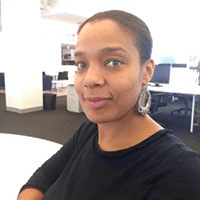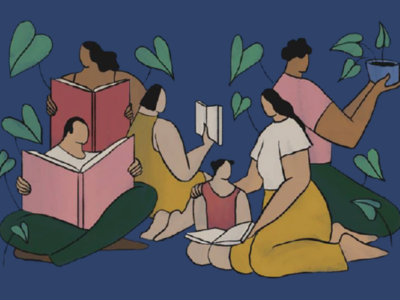
edWebinars
«Back to all edWebinars- This event has passed.
The Why and How of a Culturally Responsive Practice
Tuesday, January 25, 2022 @ 5:00 pm - 6:00 pm EST

Presented by Kelisa Wing, Chief of Diversity, Equity, and Inclusion, Department of Defense Education Activity (DoDEA); Toni Barton, JD, M.Ed., Dean of the Inclusive Schools Leadership Institute, Relay Graduate School of Education (NY); and Jessica Jackson, Director, Practitioner Partnerships, Learner Variability Project, Digital Promise
Moderated by Barbara A. Pape, Senior Director, Learner Variability Project, Digital Promise
Sponsored by Digital Promise
Closed captioning will be added to the recording within 2 weeks of the live presentation. Get a CE Certificate for this edWebinar Learn more.
Culturally responsive practice is a research-based approach that connects students’ cultures, languages, and life experiences to what they learn in school. Looking at the science behind learner variability helps us understand how learner factors such as Sense of Belonging and Stereotype Threat are connected to cognition, motivation and academic content. Understanding these connections and factors empowers teachers to select culturally responsive strategies that support students’ strengths and address their needs. Helping students understand their own learner variability is a critical step in cultivating student agency and building a culturally responsive classroom where each student can thrive.
Engaging with a culturally responsive practice builds cognitive capacity and academic mindset for students and calls on educators to reflect on their own cultural lens. Culturally responsive educators are constantly reflecting on how context impacts learners differently and uses an asset-based approach to support the whole child as they move from dependent to independent learner. Viewers walk away with shared resources and examples of what these practices look like in action from experts in the field.
In this edWebinar, the presenters:
- Provide the research that undergirds the development of culturally responsive practices
- Discuss how understanding learner variability opens the door to culturally responsive teaching
- Describe why it is important to engage with culturally responsive practices
- Share resources and examples from experts in the field of what culturally responsive practices look like in action
- Demonstrate how culturally responsive practice intersects with learner variability
- Present the Culturally Responsive Teaching Guide from Digital Promise
This recorded edWebinar is of interest to PreK-12 teachers, librarians, school and district leaders, and education technology leaders.
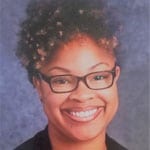
Kelisa Wing has been an educator for 12 years. She taught eighth-grade language arts and reading to military-connected children at Faith Middle School in Fort Benning, Georgia, has been an elementary school assistant principal, a professional development specialist, and is now the chief of diversity, equity, and inclusion. Kelisa honorably served in the U.S. Army for six years and attained the rank of Staff Sergeant. She is the author of Weeds & Seeds: How to Stay Positive in the Midst of Life’s Storms and Promises and Possibilities: Dismantling the School-to-Prison Pipeline.
She is a 2017 State Teacher of the Year, a 2016 Association of Supervision, Curriculum, and Development (ASCD) Emerging Leader, and the 2017 University of Maryland University College (UMUC) Outstanding Alumnus of the Year. She is a member of the Leading Educator Ambassadors for Equity (LEAE) with the Education Civil Rights Alliance (ECRA), a member of the National Network of State Teachers of the Year (NNSTOY), and a member of ASCD. She is also on the advisory board for the Digital Promise Learner Variability Project. She speaks both nationally and internationally about discipline reform, equity, student engagement, and many other topics. Kelisa holds a bachelor’s degree in English from UMUC, a Master of Arts in secondary education, and an Educational Specialist degree with a concentration in curriculum, instruction, and educational leadership from the University of Phoenix.
Toni Barton, JD, M.Ed. serves as the dean of the Inclusive Schools Leadership Institute for Relay Graduate School of Education. Toni leads the Inclusive Schools Leadership Institute, a program focused on building in school leaders the core mindsets, knowledge, and skills that support driving outcomes for exceptional learners. In this role, Toni has coached and supported leaders across 14 states. In 2019, Toni launched Relay’s inaugural Special Education Hackathon that brought together leaders from dozens of districts and charters to disrupt the status quo and rethink special education in their schools.
Prior to joining Relay, Toni served in roles such as Director of Student Support Services and school principal in Washington, D.C. charter schools. Toni started her career in education as a special education teacher in D.C. Public Schools. Toni has presented on inclusive practices at several conferences including SXSW EDU, EdSummit, and the National Charter School Conference. She is currently working on her Doctor of Education at Vanderbilt University.
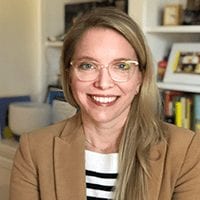
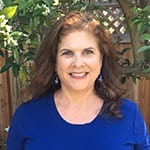
Barbara A. Pape is the senior director for the Learner Variability Project at Digital Promise. She has 20 years’ experience in strategic communications, writing, and policy analysis, primarily in education. Previously, she served as the executive producer of the award-winning Teaching & Learning conference, sponsored by the National Board for Professional Teaching Standards, where she developed content and oversaw outreach and communications. As a writer, she has written for numerous publications, including Harvard University, the National Education Goals Panel (U.S. Department of Education), and Parents magazine. Barbara also served as editor and publisher of the first electronically delivered education newsletter, the Daily Report Card. She served on the Advisory Board of the Kennedy Center’s Intersection of Arts Education and Special Education Committee, serves as a judge for the Milken-Penn Graduate School of Education Business Plan competition, and is on the Boards at the Education Writers Association and Potentia. She earned an Ed.M. at Harvard University’s Graduate School of Education and launched her career as a middle school language arts teacher.
Closed captioning will be added to the recording within 2 weeks of the live presentation.
Join the Personalize Learning for Learner Variability community to network with educators, participate in online discussions, receive invitations to upcoming edWebinars, and view recordings of previous programs to earn CE certificates.



